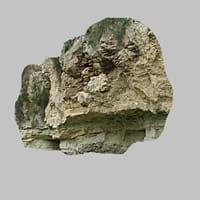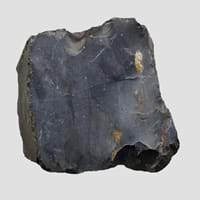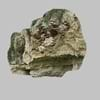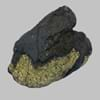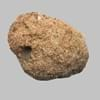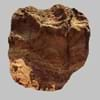Definition
A water-soluble mineral sediment resulting from concentration and crystallization by evaporation from an aqueous solution
Chert is a hard, dark, opaque sedimentary rock which is composed of silica with an amorphous fine-grained texture
Discoverer
Usiglio
Unknown
Etymology
From a sediment left after the evaporation
From flint-like quartz, 1670s, of unknown origin- a local term, which has been taken into geological use
Class
Sedimentary Rocks
Sedimentary Rocks
Sub-Class
Durable Rock, Soft Rock
Durable Rock, Hard Rock
Group
Not Applicable
Not Applicable
Other Categories
Coarse Grained Rock, Fine Grained Rock, Medium Grained Rock, Opaque Rock
Fine Grained Rock, Opaque Rock
Texture
Earthy
Banded, Rough
Color
Colourless, Green, Grey, Silver, White
Black, Brown, Green, Grey, Red, White
Durability
Durable
Durable
Appearance
Glassy, Vesicular and Foilated
Glassy or Pearly
Interior Uses
Decorative Aggregates, Entryways, Flooring, Homes, Interior Decoration
Decorative Aggregates, Homes
Exterior Uses
As Building Stone, As Facing Stone, Garden Decoration, Paving Stone
As Building Stone, As Facing Stone, Garden Decoration, Office Buildings
Other Architectural Uses
Curbing
Curbing
Construction Industry
As a Flux in the Production of Steel and Pig Iron, As a Sintering Agent in Steel Industry to process Iron Ore, As Dimension Stone, Cement Manufacture, for Road Aggregate, Making natural cement, Manufacture of Magnesium and Dolomite Refractories
Arrowheads, Construction Aggregate, Cutting Tool, Spear Points
Medical Industry
Taken as a Supplement for Calcium or Magnesium
Not Yet Used
Antiquity Uses
Artifacts
Artifacts, Monuments
Commercial Uses
Used in the manufacture of Ceramic Powder, Used in the preparation of Sulfuric Acid and Silicon Diborite
Creating Artwork, Gemstone, In fire-starting tools, Jewelry, To ignite fire, Used in flintlock firearms
Types
Not Available
Flint, Jasper, Radiolarite, Common Chert, Chalcedony, Agate, Onyx, Opal, Magadi-type Chert, Porcelanite, Siliceous Sinter
Features
Generally rough to touch, Splintery, Veined
Clasts are smooth to touch, Easily splits into thin plates, Has High structural resistance against erosion and climate
Archaeological Significance
Monuments
Not Yet Used
Used
Famous Monuments
Not Applicable
Data Not Available
Sculpture
Not Yet Used
Not Yet Used
Famous Sculptures
Not Applicable
Not Applicable
Pictographs
Used
Not Used
Petroglyphs
Used
Not Used
Figurines
Not Yet Used
Not Yet Used
Formation
Evaporite is water-soluble mineral sediment which forms from concentration and crystallization by evaporation from an aqueous solution.
Chert forms when microcrystals of silicon dioxide grow within soft sediments that become limestone or chalk. The chert formation can be either of chemical or biological origin.
Mineral Content
Calcite, Cancrinite, Gypsum, Kyanite, Magnetite
Quartz, Silicon
Compound Content
CaMg(CO3)2, CaO, Calcium Sulfate, KCl, MgO, NaCl
Silicon Dioxide
Types of Metamorphism
Burial Metamorphism, Cataclastic Metamorphism, Contact Metamorphism, Impact Metamorphism, Regional Metamorphism
Not Applicable
Types of Weathering
Not Applicable
Not Applicable
Types of Erosion
Not Applicable
Chemical Erosion
Grain Size
Medium to Fine Coarse Grained
Very fine-grained
Fracture
Conchoidal
Uneven, Splintery or Conchoidal
Porosity
Less Porous
Highly Porous
Luster
Subvitreous to Dull
Waxy and Dull
Cleavage
Perfect
Non-Existent
Toughness
Not Available
1.5
Specific Gravity
2.86-2.99
2.5-2.8
Transparency
Translucent
Translucent to Opaque
Density
2.8-2.9 g/cm3
2.7 g/cm3
Resistance
Heat Resistant, Pressure Resistant
Heat Resistant, Impact Resistant, Pressure Resistant, Wear Resistant
Deposits in Eastern Continents
Asia
Not Available
China, India, Iran, Japan, Oman, Russia, Saudi Arabia, Taiwan, Thailand, Vietnam
Africa
Not Available
Kenya, Morocco, South Africa, Tanzania
Europe
United Kingdom
Austria, France, Greece, Italy, Malta, Poland, Portugal, Serbia, Spain, Sweden, United Kingdom
Others
Not Yet Found
Greenland, Mid-Atlantic Ridge
Deposits in Western Continents
North America
USA
Canada, Mexico, USA
South America
Colombia, Paraguay
Bolivia, Brazil
Deposits in Oceania Continent
Australia
Central Australia, Western Australia
New South Wales, Queensland, South Australia, Western Australia
All about Evaporite and Chert Properties
Know all about Evaporite and Chert properties here. All properties of rocks are important as they define the type of rock and its application. Evaporite and Chert belong to Sedimentary Rocks.Texture of Evaporite is Earthy whereas that of Chert is Banded, Rough. Evaporite appears Glassy, Vesicular and Foilated and Chert appears Glassy or Pearly. The luster of Evaporite is subvitreous to dull while that of Chert is waxy and dull. Evaporite is available in colourless, green, grey, silver, white colors whereas Chert is available in black, brown, green, grey, red, white colors. The commercial uses of Evaporite are used in the manufacture of ceramic powder, used in the preparation of sulfuric acid and silicon diborite and that of Chert are creating artwork, gemstone, in fire-starting tools, jewelry, to ignite fire, used in flintlock firearms.
